Butte College Construction Keeps Rebuilding Efforts ‘Butte Strong’
ECU Sector – October 2020
Watch the “Butte Strong” video from Butte College.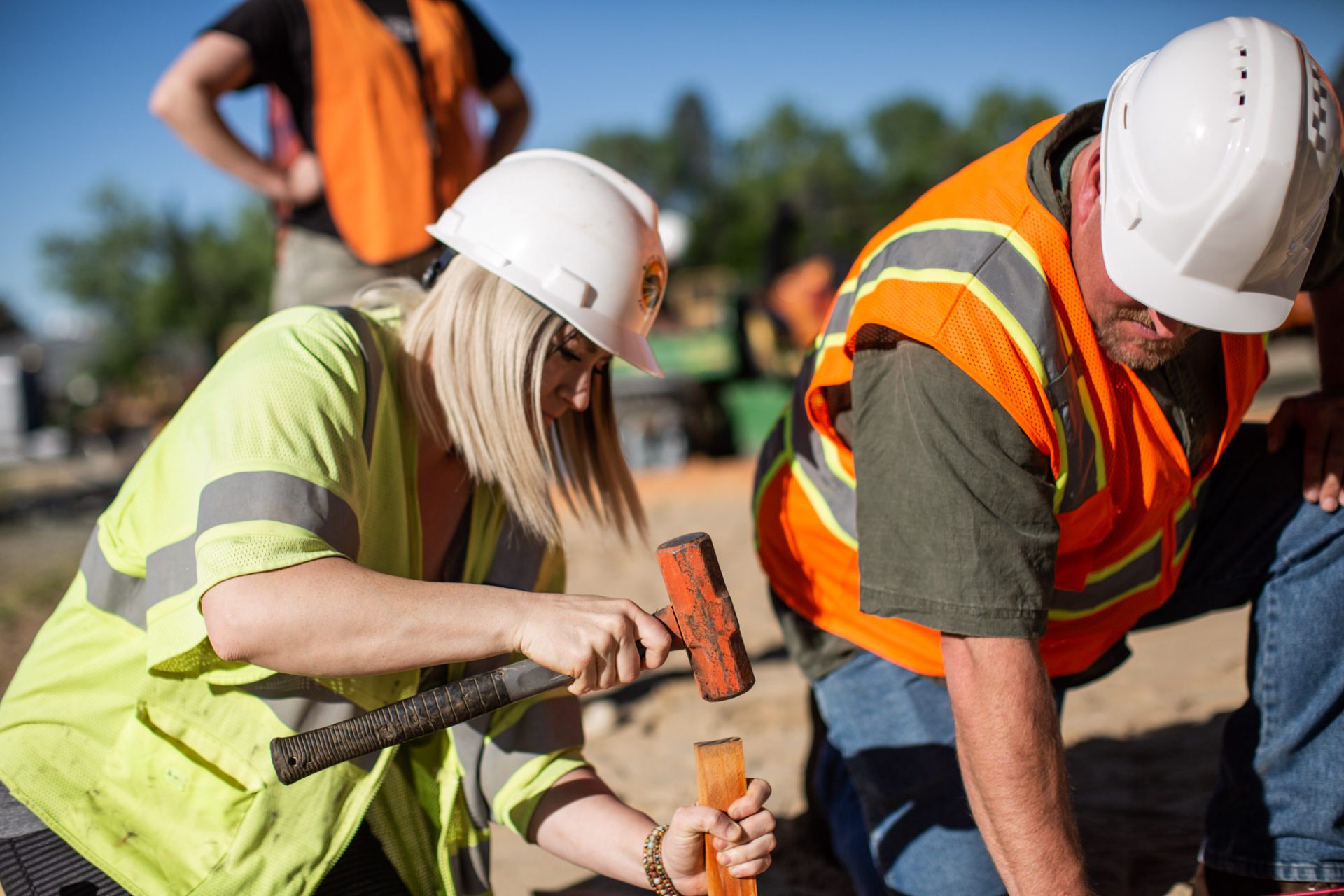
When the 2018 Camp Fire destroyed 90 percent of the structures in the town of Paradise, it also devastated a workforce.
And while the wounds of the disaster remain fresh for the nearly 28,000 community members who were displaced, the town’s burgeoning industrial vibrance can seem like a distant memory.
“Prior to the fire, almost 50 percent of the tradespeople in Butte County lived in Paradise,” says Charles Brooks, Executive Director of the nonprofit Rebuild Paradise Foundation and a Butte College alum.
Those professionals lived in the most fire-affected areas and were forced to leave, further compounding the preexisting workforce gap. Now, with Paradise facing the largest wildfire recovery in California’s history, there are not enough workers to reconstruct the town. “We’re in a major, major deficit of what we’re going to need for the trades workforce,” says the director.
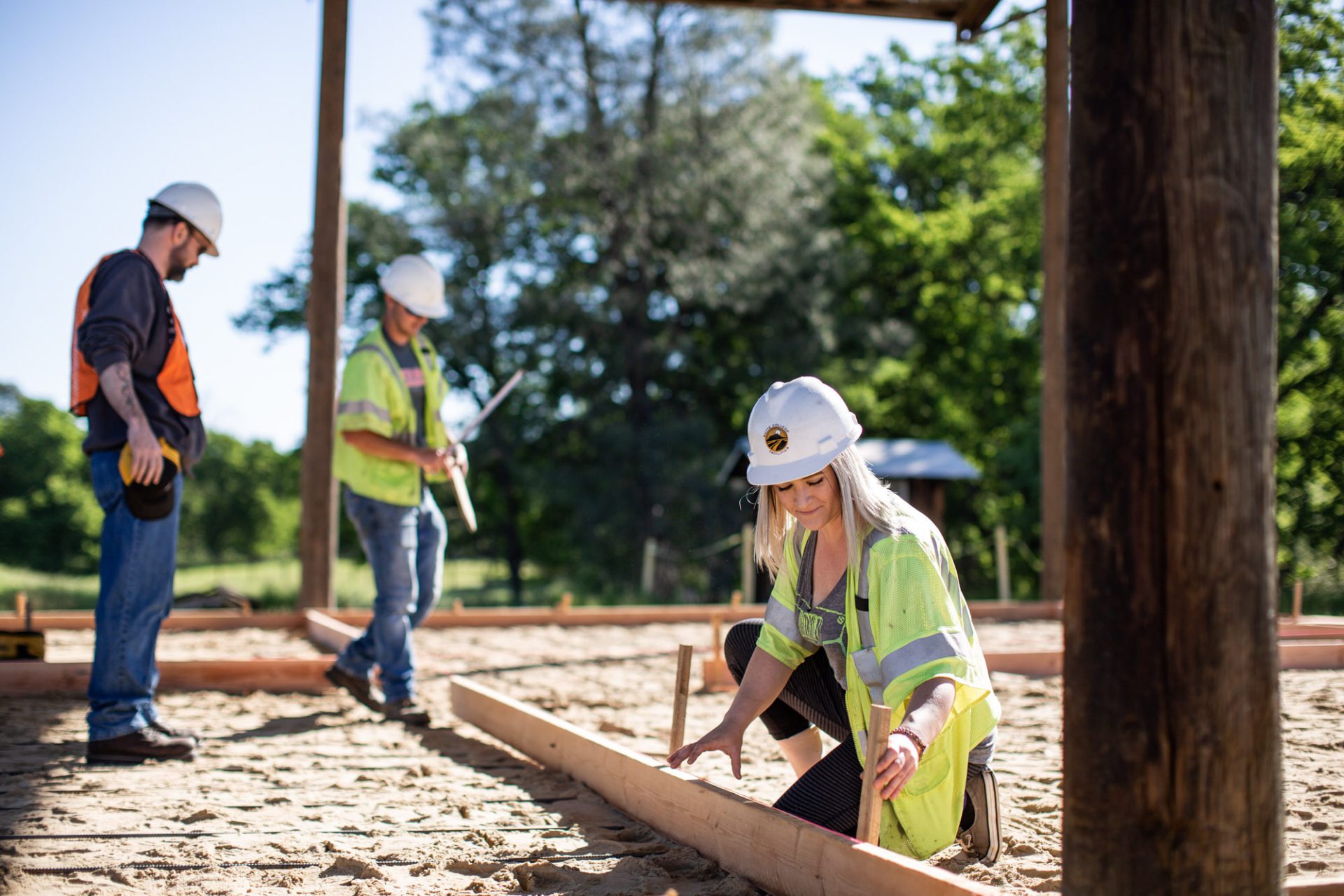 But where there are challenges, Brooks, who lost his home in the Camp Fire, also sees hope. He says Butte College has stepped up to foster much-needed workforce development through Career and Technical Education, pivoting with alacrity to serve up training for in-demand, well-paying jobs.
But where there are challenges, Brooks, who lost his home in the Camp Fire, also sees hope. He says Butte College has stepped up to foster much-needed workforce development through Career and Technical Education, pivoting with alacrity to serve up training for in-demand, well-paying jobs.
“The fact that a community college can be agile to change programs, adapt with the needs of the community, and work with community partners, that is going to help attract new people back to the area,” says Brooks.
A year before the fire, Butte had already been developing two new certifications in Applied Construction and HVACR (Heating Ventilation, Air Conditioning, Refrigeration) to meet the existing demand. But when disaster struck, the College pulled up its “Butte Strong” boots for the community.
“We pushed it through with the help of a lot of people,” recalls Thomas “Tom” Williams, Department Chair of Agricultural and Environmental Sciences, HVACR and Construction. After many late nights, the two new programs made the catalog just in time for Fall 2019.
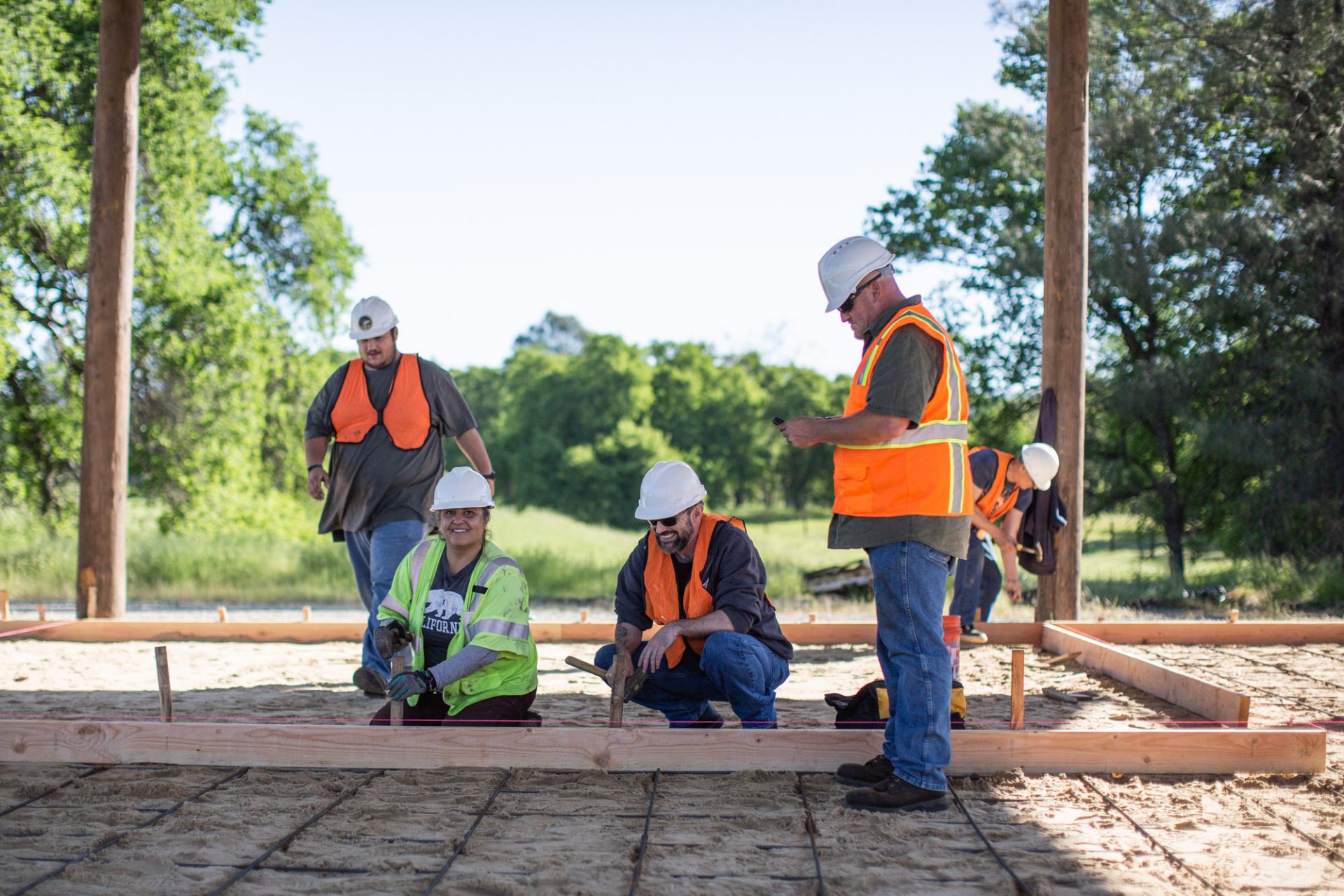 “We managed to do it because everybody knew its importance,” notes Williams. “It was a big lift and was so worth it.”
“We managed to do it because everybody knew its importance,” notes Williams. “It was a big lift and was so worth it.”
With more than 25 years of construction experience, the department chair is attuned to the persistent demand for tradespeople from his time as the president of the member-run, nonprofit trade association Valley Contractor Exchange (VCE).
“We were working on workforce development and could see the problem at that time,” says the instructor, who notes that 1.5 million workers are now needed in the trades across the country. To put it mildly, “We’ve got some training to do.”
That’s where the Applied Construction program can quickly evolve a more robust workforce. The one-year certificate teaches everything from concrete foundations to framing and finishes, as well as the basics of mechanical, electrical and plumbing. Most grads from the initial cohort, according to the proud professor, found jobs immediately.
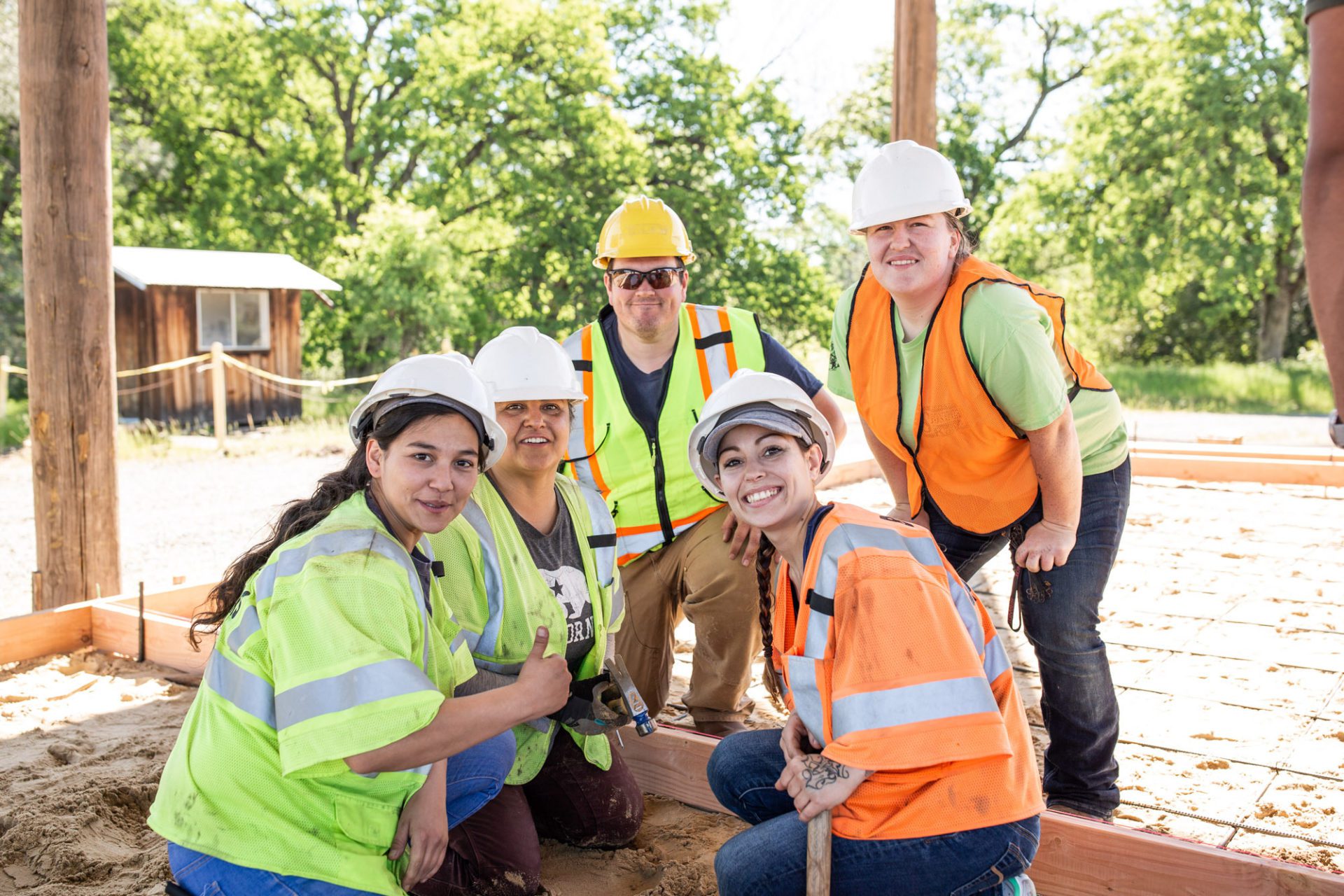 “It’s a year, and boom — you’re out on the job.”
“It’s a year, and boom — you’re out on the job.”
There’s Marleau Peterson, for example, who had to shelter in a gas station while firefighters made a desperate stand against the raging Camp Fire. Her life was saved, but her home was lost, as well as all of the rental properties she managed for her business. The “Butte Strong” alum was able to put the devastation behind her with a fresh start in the Applied Construction program.
“It gave me the confidence to know that I can figure any of it out and tackle it,” says the busy builder. She’s currently using the skills she learned at Butte College to clear her properties and keep them fire-safe while helping friends with remodeling and roofing projects. She hopes to bounce back and start her own remodeling business, bolstered by the strong foundation she constructed at Butte.
“It makes me feel like I know more of what I’m doing,” admits Peterson. “I can now feel good to do a [concrete] slab or a stem wall.”
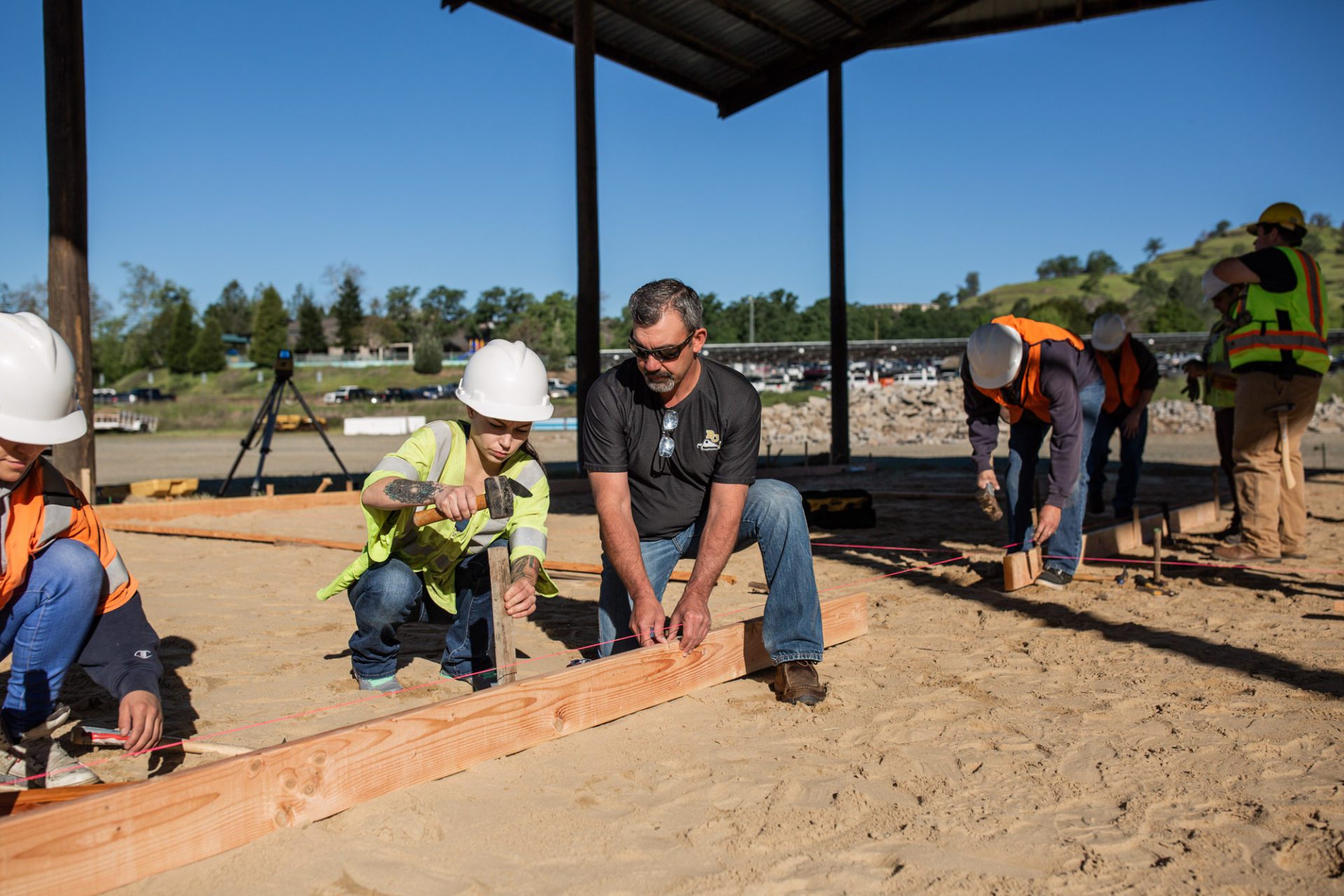 “A ‘win-win’ for everybody…”
“A ‘win-win’ for everybody…”
Thanks in part to Butte College’s efforts, the local workforce is beginning to develop a blueprint for recovery. Immediate plans for the Applied Construction class include connecting student volunteers to rebuilding projects with the disaster relief nonprofit Hope Crisis Response Network. “It’s a win-win for everybody,” says Williams, who sees volunteer work as an opportunity not only to uplift the community but to garner professional exposure and on-the-job experience.
Meanwhile, the newly launched HVACR program – the first of its kind north of Sacramento – is set to provide the impacted industry with much-needed professionals. Like the Applied Construction program, the comprehensive two-year certification includes work experience to afford students real-world training and networking opportunities with local businesses.
“All of our students are going to come out of this program with a job immediately,” ensures Williams.
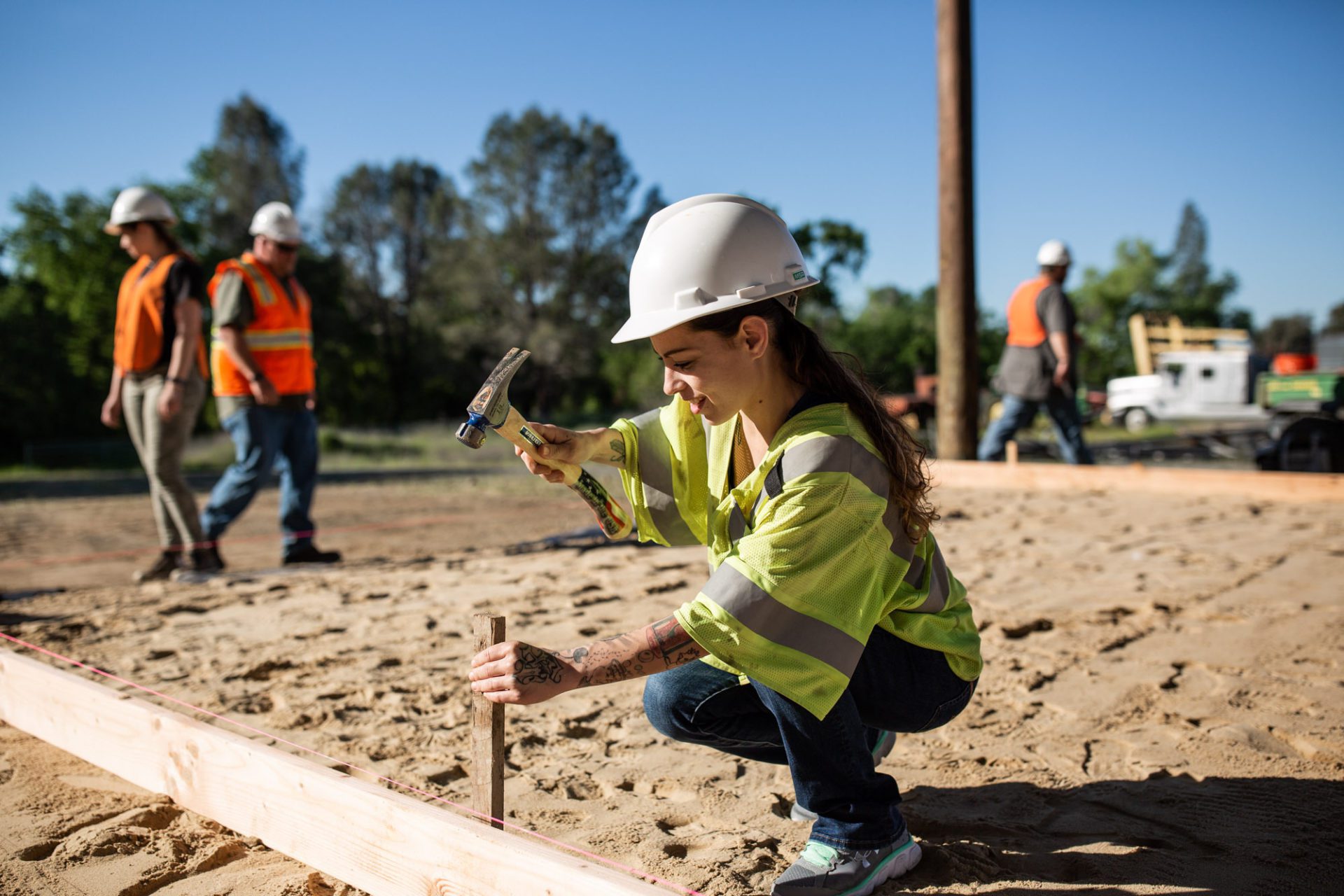 The plan is to launch cohorts in both spring and fall as the new programs gain momentum while simultaneously developing a two-year electrical certification with a solar capstone. It’s the kind of forward-thinking that is critical to the region’s renewal.
The plan is to launch cohorts in both spring and fall as the new programs gain momentum while simultaneously developing a two-year electrical certification with a solar capstone. It’s the kind of forward-thinking that is critical to the region’s renewal.
“Tom is just doing a fantastic job kicking off those programs,” effuses Amy Rohrer, Executive Director of the Valley Contractors Exchange (VCE). A Butte College alum, Rohrer also lost her residence in the Camp Fire and is rebuilding homes for her family and her neighbors with the construction company she co-owns with her husband.
“It’s really difficult to find specific trades, and the fact that Butte College is training those workers is just invaluable,” says the director and house builder. “I don’t know what we would do without them.”
In her work with the VCE, Rohrer has encountered multiple contractor surveys that reveal the importance of workforce development for entry-level positions. In fact, she says, it’s the number one issue for the region.
“There is going to be plenty of job security for years to come,” promises Rohrer. “We’ve got a lot of work to be done.”
To that end, the VCE and Butte College have partnered for several short-term training programs to help launch tradespeople into the recovery process. The most recent is an incumbent workers pilot program, currently under development for general contractors reestablishing homes in Paradise. The four-to-six-week, worksite-based program will teach the nuts and bolts of construction, offering OSHA 10 certification to entry-level workers to help fill immediate employer needs.
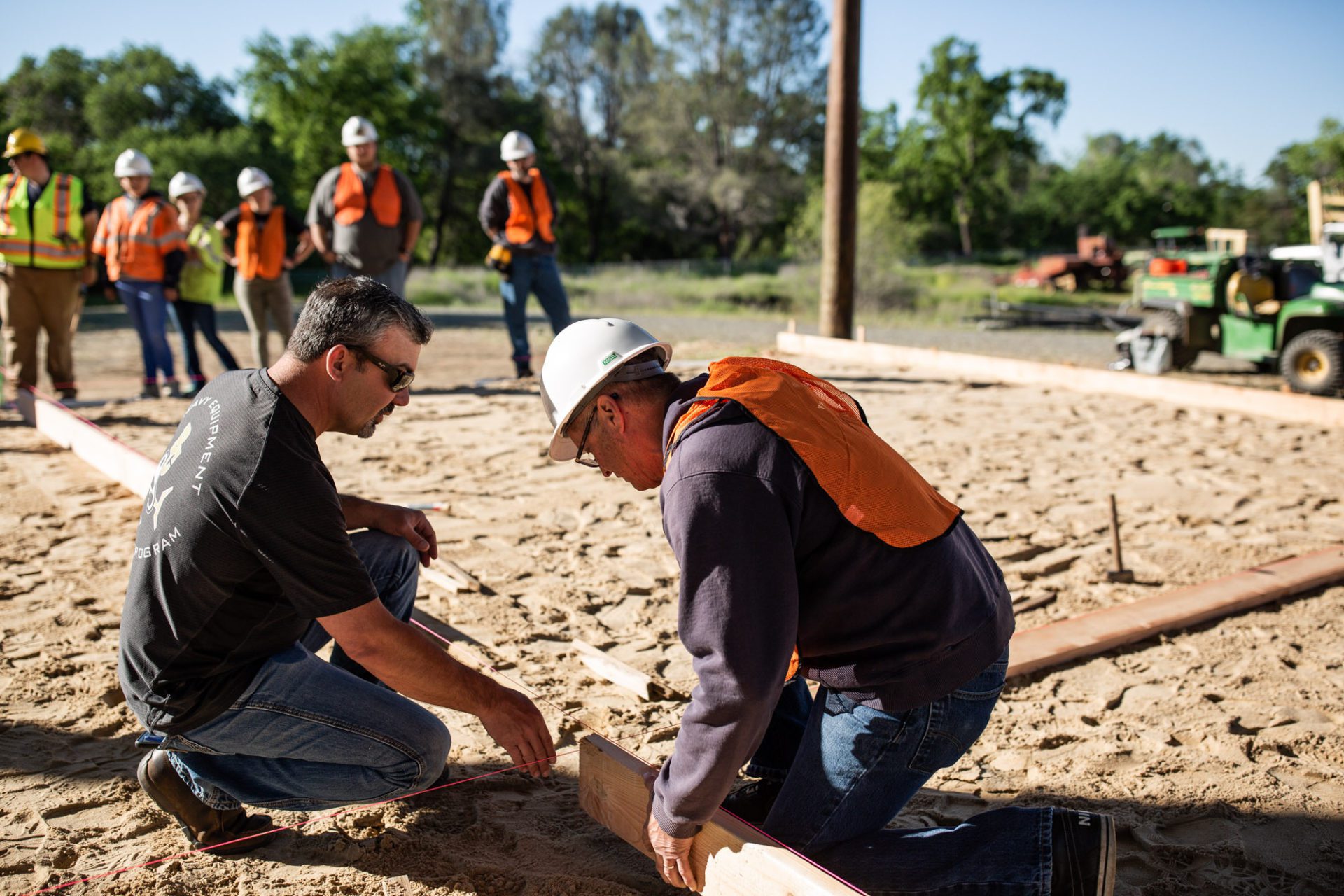 “The whole idea is to promote the Paradise rebuild,” says Linda Zorn, Executive Director of Economic Workforce Development at Butte College.
“The whole idea is to promote the Paradise rebuild,” says Linda Zorn, Executive Director of Economic Workforce Development at Butte College.
For Rohrer’s part, it’s an honor to partner with the school in efforts to bolster the workforce, especially in light of the looming $2 billion in construction slated for the region over the next 10 years: “There is just such a huge need for the work that Butte College is doing in their construction programs.”
Setting a foundation for student success.
The impact is already apparent, with students heeding the Butte College call to build bold careers while revitalizing their community. Students like Alex Ortega, a grad from the first cohort of Applied Construction, who ditched a computer science major for a program where he could create in 3D reality.
“I learned far more than I imagined I would and gained a newfound appreciation and passion for construction,” says the alum, who was treated like a real apprentice in his classes, learning the versatile trade from the ground up. “The wealth of knowledge we had access to in the Butte construction program was tremendous, including trade secrets that most employers might not tell you.”
Best of all, Ortega received support from Butte’s Promise Grant, as well as a separate grant from the VCE, helping make the already affordable classes even more accessible. With higher education and a slate of instructors’ references under his belt, he was able to land an in-demand job as a framing and carpentry apprentice for a company that rebuilds residences in the area.
“I do feel tremendous pride for what I’m a part of in Paradise,” says the home builder, who one day hopes to open his own construction company focusing on sustainable building techniques. He’s grateful for the opportunity to work outdoors on a meaningful career instead of being stuck in a cubicle, and he knows his educational foundation played a critical part:
“Butte College opened up doors for me, plain and simple.”
‘A pillar of our community…’
With industry leaders eager to snap up qualified professionals, the climate is becoming increasingly lucrative for graduates of career education programs like those at Butte College.
“As the demand for skilled tradespeople increases, wage scales in trades have increased, which is great for willing students,” notes industry partner Tyler Gullick, Project Manager at McClelland Air Conditioning. As the HVACR program’s first cohort enters their final year of training, he says he can’t wait for the College’s cadets to join the company’s hiring pool. “The District listened and took immediate action in implementing these great programs that provide high-paying jobs without the need for a traditional four-year degree.”
As an advisory board member, Gullick helped the school develop its HVACR courses by donating equipment and materials, collaborating on curriculum and hosting workplace visits. The company is actively involved in rejuvenating Paradise, working on schools, churches, homes and commercial spaces.
With the College bolstering the local talent pipeline, Gullick hopes his company can continue to help the community grow into a sustainable future:
“Butte College has been a pillar of our community for years, and it will be for years to come.”
Sources:
Energy, Construction, Utilities COE stats, https://nfnrc.org/wp-content/uploads/2023/01/Copy-of-Energy-Construction-Utilities-COE-stats.pdf